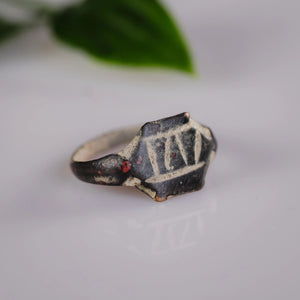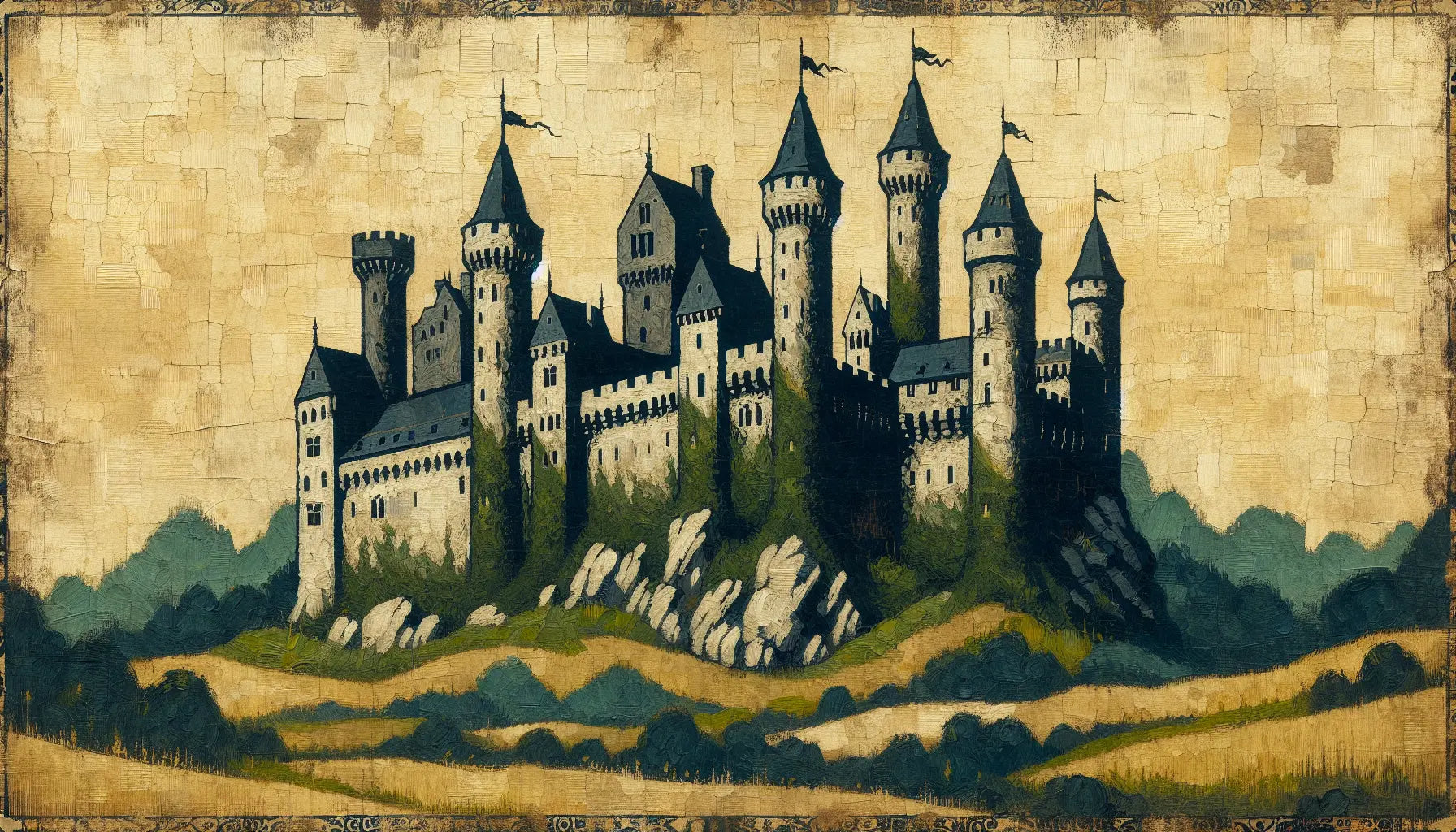Interesting facts
Can I Buy a Castle in Germany? A Journey into Historic Property Ownership
Have you ever wandered through the stone halls of a medieval castle, imagining what life must have been like in centuries past? The towering walls, the intricate carvings, the whisper of history etched into every corner—it’s a dream shared by many. But what if that dream could become something tangible, something you could hold in your hands? Could you, as an individual today, become the owner of a castle in Germany?
Owning a castle in Germany is not just a whimsical fantasy. It is, in fact, within reach. Yet, with this rare opportunity come unique challenges and responsibilities—deeply rooted in history, legal frameworks, and cultural preservation. If you find yourself captivated by the allure of living among centuries-old walls, join me on a journey exploring what it truly means to buy a castle in Germany, from the purchase process and legal requirements to the emotional connection to heritage and the role of stewarding history into the future.
Where to Find Castles in Germany: Regions Rich in History
Scattered across Germany’s varied landscape are countless castles—some standing proud and intact, others lying in romantic ruins swallowed gradually by time and nature. However, if you are seriously considering investing in such a property, the choice of region truly matters. This is more than just a question of beauty; it's about atmosphere, community, accessibility, and even climate.
Among the most popular regions are Bavaria, Baden-Württemberg, and Brandenburg, each offering a distinct flavor of history and architectural style. Bavaria, with its breathtaking Alpine backdrop, is famous for fairytale palaces and rugged medieval fortresses. Here you might discover everything from romantic ruins draped in ivy to stately manors that still echo with nobility’s steps.
Baden-Württemberg, known for rolling hills and its renowned wine regions, presents castles deeply embedded in the medieval feast of commerce and aristocracy. Some here showcase elegant Renaissance touches, reflecting centuries of adaptation and refinement.
On the northern edge, Brandenburg encompasses a vast plain around Berlin dotted with historic estates—baroque influences mingle with the sobering hum of Prussian history. Some castles here boast imposing stone towers that have witnessed turning tides of war and peace.
Choosing your region is not only about aesthetics or proximity to bustling cities. You should consider how the local lifestyle resonates with your own desires. Do you long for solitude atop a hill with panoramic views? Or would you prefer a castle nestled within a lively village where local traditions still thrive and neighbors gather for festivals? The community, infrastructure, and climate all weave into the experience of castle living—shaping daily life far beyond the stones themselves.
Navigating the Legal Landscape: What You Must Know
The idea of acquiring a castle can be intoxicating, evoking images of grandeur and history—but the path to ownership is tightly regulated by German laws designed both to safeguard heritage and to guarantee legal clarity. Unlike some countries where historic properties can impose insurmountable restrictions, Germany warmly welcomes buyers—including international purchasers—to acquire castles. Yet, proceeding without due diligence would be reckless.
Every real estate transaction in Germany, castles included, must be officially registered in the Grundbuch—the land registry system that provides comprehensive transparency about ownership, mortgages, easements, and any encumbrances attached to the property. This system ensures that your rights as an owner are protected and verifiable before completing a deal.
Moreover, many castles fall under heritage preservation rules called Denkmalschutz. These laws protect cultural monuments and restrict alterations that might compromise their historical and architectural integrity. Before your purchase, detailed inspections assess which renovations or restorations are permitted. Even seemingly minor repairs often require permits and careful adherence to traditional methods and materials.
Because heritage laws intersect with general property law, tax regulations, and sometimes with environmental rules (especially if the castle sits within a protected nature area), consulting legal experts specialized in historic properties becomes indispensable. They can help you navigate contracts, tax implications, potential liabilities such as hidden debts, contested ownership claims, or structural damages often concealed by time.
Understanding the legal landscape doesn’t just prevent surprises—it frames your role as a responsible future owner who honors the past through compliance and care.
For those looking to preserve a piece of history in a tangible form, consider exquisite historical artifacts that symbolize the timeless nature of heritage. The Aurora Antiqua collection, for instance, offers beautiful items . While exploring castles, it can be rewarding to own smaller historical objects, like Roman rings or minted coins, which complement the rich history of the properties. By collecting such artifacts, one adds a personal layer of historical appreciation to the experience of owning a historic estate.

The Journey from Dream to Ownership: The Purchase Process
Buying a castle is unlike purchasing a common home or a modern apartment. The entire experience can be exhilarating and complex. Initially, you might begin your search with specialized real estate agencies trained in historic estates. These professionals know the market’s particularities and can help you filter options based on your vision, budget, and long-term plans.
Finding the right castle may take time. Some properties come onto the market rarely and disappear just as quickly, while others might have been waiting quietly for years. Patience and persistence pay off.
Once you identify a promising estate, negotiations commence regarding price, services included (like furniture or land), and terms of sale. Castle prices can vary wildly. Smaller ruins or partial remains start in the lower hundreds of thousands of Euros—attractive to those prepared to invest in restoration. Well-preserved castles with extensive parklands or impressive architectural features can command millions, representing both real estate and a cultural legacy.
Unlike a straightforward property deal, buying a castle often entails embracing a lifestyle and recognition of the cultural weight your purchase carries. After negotiating, the formal step involves signing the purchase contract in the presence of a notary public (Notar), a mandatory procedure under German law. The notary ensures the contract is balanced, legally sound, and that both buyer and seller understand their rights and duties.
Following contract signing and payment, ownership transfer becomes legally binding once the change is entered into the Grundbuch. Only then do you officially become the castle’s guardian and caretaker.
 Imagine holding a Roman silver ring dating back to the 1st-3rd century CE—like the stunning "Auriga" unearthed in German lands. Such artifacts embody a universal human fascination with the past and a yearning to connect across millennia. Owning a castle is akin to becoming the steward of this tangible legacy.
Imagine holding a Roman silver ring dating back to the 1st-3rd century CE—like the stunning "Auriga" unearthed in German lands. Such artifacts embody a universal human fascination with the past and a yearning to connect across millennia. Owning a castle is akin to becoming the steward of this tangible legacy.
Just as the Roman ring represents craftsmanship, power, and identity of its era, castles stand as monuments to ages of knights, royal courts, battles, peace treaties, celebrations, and daily life. Each stone tells its own narrative—a story waiting to be preserved, retold, and lived anew.
In Germany, this relationship between past and present is vibrant and visible. When you become a castle owner, you don’t just acquire a building—you enter a living chronicle. Your care, your decisions, your presence ensure the history contained therein continues to inspire generations yet to come.
This stewardship is both a privilege and a responsibility: safeguarding not just bricks and mortar, but memory itself.
Considering the price of a castle also reminds us of the broad financial spectrum these majestic estates occupy. Exploring sources like the list of castles in Germany can provide potential buyers with an understanding of regional variations and historical significance.
Considering the Price: What Does a Castle Cost in Germany?
Prices for castles in Germany span a vast spectrum, influenced by size, condition, location, historical significance, and land area. It’s easy to assume that all castles represent astronomical investments—and while many do—smaller castles or ruins offer more accessible entry points into this fascinating world.
For example, a modest castle located in a rural area might start around several hundred thousand Euros. Such properties often require major renovations but provide the chance to restore authentic stone walls, vast grounds, and original features that can be matched to your personal vision.
On the other hand, well-preserved grand castles in popular areas such as Bavaria might reach upwards of multiple millions. Consider a twenty-room castle surrounded by a sprawling park in Bavaria—prices can hover around €3 million or more. Bringing such a place up to modern comfort standards—renovating aging roofs, updating electrical wiring, installing heating systems—might cost another €500,000 or beyond.
Beyond purchase and renovation costs, continuous expenses include insurance, property taxes, and maintenance. Heating alone can be substantial given the volume and density of castle walls.
Therefore, owning a castle demands financial readiness alongside passion. It’s an endeavor where careful budgeting meets dreams.
What factors should potential castle buyers consider to ensure they are making a well-informed decision?
Before diving into castle ownership, buyers should assess how they're willing to adapt to the unique challenges posed by historic estates, including potential restoration needs and maintaining historical integrity. Additionally, understanding legal and financial responsibilities is crucial.
Before diving into castle ownership, buyers should assess how they're willing to adapt to the unique challenges posed by historic estates, including potential restoration needs and maintaining historical integrity. Additionally, understanding legal and financial responsibilities is crucial.
Practical Aspects: Living in a Castle Today
Despite the romantic allure of castle life, day-to-day realities demand practical consideration. Many castles occupy challenging locations—perched on hillsides for optimal defense centuries ago but less convenient for modern access. Roads may be narrow or winding, and public transportation limited.
Modern living conveniences like high-speed internet, efficient heating, or centralized water supply may require careful and discreet installation respecting the historic fabric. Waste management and road maintenance also factor into daily logistics.
For some owners, isolation is a treasured element—peace, privacy, and the chance to step away from modern bustle. For others, proximity to cooperatives, schools, cultural events, and services remains important.
The ideal balance depends on your lifestyle preferences and how you envision inhabiting your castle beyond its façade.
Stewardship and Community: Sharing History
Castle ownership need not be a solitary experience. Many owners embrace the role of cultural ambassadors by opening their castles to visitors, hosting tours, historical reenactments, weddings, or concerts. Some transform sections of their estates into museums, hotels, or community centers.
Such activities not only support the costs of upkeep but also knit the castle into the social fabric of the region. They keep traditions alive, educate younger generations, and contribute economically through tourism.
In this sense, castles are not merely private homes—they are gateways into shared cultural memory, enriching communities while honoring history.
What to Ask Before Taking the Leap?
If the possibility of buying a castle enchants you, pause to reflect on some important questions:
- What is your vision for the property? Do you want it as a private residence, a business venue, or a cultural project?
- Are you prepared for the financial investment—both initial and ongoing—as well as the significant time commitment?
- Do you fully understand the legal obligations tied to heritage protection and property law?
- Have you consulted professionals experienced in historic real estate law, restoration, and financing?
- How does the castle’s location align with your daily lifestyle and long-term plans?
Taking time to answer these honestly can save future troubles and ensure your castle becomes a source of joy, not burden.
Final Thoughts: A Unique Path Beckons
Buying a castle in Germany transcends a mere property transaction. It is stepping into a timeless dialogue between past and present, culture and caretaking. The endeavor requires patience, respect, and a deep passion—not only for stones and wood but for the stories they hold.
While the financial and maintenance demands are considerable, the reward lies in holding a piece of Europe’s soul. It’s a journey where ancient history and modern life intertwine, and your new chapter begins.
Many who have embraced castle ownership describe it as a life-shaping experience—an invitation to live differently, with reverence for heritage and hope for the future. If you can see yourself as a guardian of such legacies, Germany’s castles await you.
To own a castle here means to embrace complexity and beauty hand in hand. The doors of history stand wide open—will you step inside?
Discover Timeless Craftsmanship
Shop the 'Auriga' RingCastle Ownership Tips and Resources
- Specialized Real Estate Agencies: Platforms like Castle-World.com or HistoricEstateGermany.de list available castles and provide expertise tailored to historic properties.
- Heritage Preservation Authorities: Local Denkmalschutz offices offer insight on what restoration or modification is permitted, ensuring compliance.
- Restoration Specialists: Contact craftsmen skilled in traditional German building techniques, such as timber framing, lime plastering, and stone masonry.
- Financing Options: Explore loans specifically designed for heritage property renovation, sometimes supported by cultural funds or grants.
- Insurance: Castle insurance policies cover risks unique to historic properties, including storm damage, fire, and vandalism.
Furthermore, visiting open castle days or joining heritage preservation organizations can provide valuable firsthand experience and networking opportunities before making a commitment.
Owning a castle can be as much a personal adventure as a cultural mission—these steps will help prepare you to embrace it fully.
What regions in Germany are best for buying a castle?
Popular regions for buying a castle include Bavaria, Baden-Württemberg, and Brandenburg, each offering unique historical and architectural styles. Bavaria is known for its alpine backdrop and medieval fortresses; Baden-Württemberg for its rolling hills and Renaissance influences; Brandenburg for its vast plains around Berlin and Prussian history.
What are the legal requirements for purchasing a castle in Germany?
Purchasing a castle requires registration in the 'Grundbuch' land registry, and compliance with heritage preservation laws known as 'Denkmalschutz'. These rules might restrict certain alterations to maintain historical integrity. It's crucial to consult legal experts familiar with historic properties to navigate complexities efficiently.
How can I finance the purchase and renovation of a castle?
Financing options include specialized loans designed for heritage properties, sometimes supported by cultural grants or funds. It's beneficial to work with agencies offering experience in historic estate transactions. Also, consider revenue-generating ideas like hosting events or opening part of the castle to the public.




